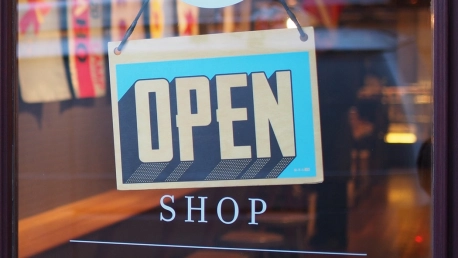Artificial intelligence (AI) is already used on a large scale in retail, and big companies are experimenting with developing new ways to use it in the entire product and service cycle, from the moment a product is developed and created to post-sale services. Automation is one of the most important aspects big retailers are concerned with, along with discovering new efficient ways to develop new products at low costs. The new technologies are used by companies around the world to obtain and maintain advantages their competitors do not have. At the same time, innovations are new chances to change the game, as well as the position on the market.
JD.com, the biggest retailer in China, uses both automation and AI to handle the competition from rivals Amazon and Alibaba. The company has recently introduced AI Catapult, a new accelerator, hoping to use artificial intelligence and blockchain technologies to design a better supply chain. JD.com’s engineers in China and Silicon Valley have already created applications that helped the retailer become a world leader in the commercial use of AI. Their technology is already used in the company’s drones, robotics, automation technology, smart supply chain, marketing and customer service applications. Meanwhile, rival Amazon has partnered with the UK government for the development of small parcel deliveries via drones.
Big retailers, as well as newcomers, should pay close attention to the new technology trends because both automation and the use of AI have turned out to be more than a mirage. With the help of technology, the market is changing rapidly and will not forgive companies that do not adapt. CB Insights recently published a report that proves big companies do not ignore these trends, with giants such as Amazon and Walmart partially owing their success to quickly adopting new technologies and applications.
Automation helps big companies in retail to produce, store and deliver faster than their competition, at lower costs. AI helps them with product optimization and allows them to get to remote locations sooner, as well as to present their customers with new goods that fit their taste. And the two technologies can be used simultaneously to create efficient new solutions to old problems. The use of robotization in the retail industry is not a new idea, you will find it in production, storage and delivery processes all over the world. While the robot error and failure rate has always been closely monitored, with the help of AI, the software can manage the entire factory by itself, without human intervention. AI can reduce the number of tasks assigned to a robot and transfer the load to other robots based on the production cycle and the demand from the market, turning the whole process into a much more efficient one, with lower costs.
A CEO from a retail company has to run thousands of stores on different markets, while monitoring the entire supply chain as well. By using AI, the developers have created extremely useful apps, which can access information from a certain market at any time and can verify the stage of the sales and the reasons they have decreased or increased, every day. Such a system monitors social media and correlates it with the performance of the market. For example, if the social media feeds offer information about works on important roads during the weekend, this may also mention the reason people did not go to the stores in that area. AI platforms can manage data from multiple sources, such as ERP, CRM and social media, to find and list the reasons for an increase or decrease in the sales of a specific store.
Aside from sales, data and transaction security is another issue to which AI has proven able to deliver efficient new solutions. For PayPal, increasing transaction security has turned out to be essential because any transaction made by a PayPal user could be considered suspicious. The account of a user from the US could be and actually was accessed anywhere in the world, and real fraud was harder and harder to detect. However, PayPal’s security system became capable of telling the difference between real and apparent fraud, thanks to the use of AI and deep learning. Although fraud was one of the company’s biggest issues, especially since the data of the customers could be stolen through techniques such as phishing, the company managed to provide its customers with better security, through an intensive and real-time analysis of the transactions, using AI.
Automation and AI are here and they influence the retail market every day. Companies from China and India may surpass those from the US or Europe, while the fight for technological advancements is becoming fiercer. The world economy is increasingly open to change, and this may prove to be a huge advantage for those with human resources adapted to embracing the new wave of changes.









